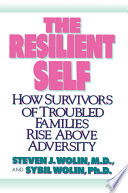

The concept of resilience is central to personal and professional growth. Resilience is defined as the ability to bounce back from setbacks, adapt to change, and keep going in the face of adversity. In 'The Resilient Self', the author delves into the psychological underpinnings of resilience, explaining how it is not just an inherent trait but a skill that can be developed. The book outlines various factors that contribute to resilience, such as emotional intelligence, social support, and self-efficacy. By understanding these components, readers can identify areas in their own lives where they can improve their resilience, ultimately leading to better coping strategies during difficult times. The author provides practical exercises and examples to illustrate how resilience can be cultivated, emphasizing that everyone has the potential to become more resilient.
Continue readingMindset plays a crucial role in resilience. The book discusses the distinction between a fixed mindset and a growth mindset, as popularized by psychologist Carol Dweck. A fixed mindset views abilities as static, while a growth mindset believes that abilities can be developed through effort and learning. 'The Resilient Self' argues that adopting a growth mindset is essential for resilience, as it encourages individuals to embrace challenges, learn from failures, and persist in the face of obstacles. The author provides strategies for shifting from a fixed to a growth mindset, including reframing negative thoughts, setting realistic goals, and celebrating small wins. This shift not only enhances resilience but also fosters a more positive outlook on life.
Continue readingThe importance of social connections cannot be overstated when it comes to resilience. The book emphasizes the necessity of building and maintaining a strong support network, which can include friends, family, colleagues, and mentors. These relationships provide emotional support, practical assistance, and a sense of belonging, all of which are vital during challenging times. 'The Resilient Self' offers guidance on how to cultivate these relationships, such as being open to vulnerability, actively listening, and showing appreciation for others. The author also discusses the idea of reciprocity in relationships, where support is mutual and strengthens bonds. By fostering a supportive network, individuals can significantly enhance their resilience and ability to cope with stress.
Continue readingEmotional regulation is a key component of resilience. The book explores various strategies for managing emotions effectively, particularly during times of stress or adversity. Techniques such as mindfulness, cognitive restructuring, and self-compassion are discussed in detail. Mindfulness allows individuals to stay present and acknowledge their feelings without judgment, while cognitive restructuring helps in reframing negative thoughts into more positive or constructive ones. Self-compassion encourages individuals to treat themselves with kindness during tough times, reducing feelings of shame or inadequacy. 'The Resilient Self' provides practical exercises for developing these skills, emphasizing that emotional regulation is crucial for maintaining resilience and mental well-being.
Continue readingSetting realistic and achievable goals is another significant aspect of resilience. The book outlines the importance of having clear goals that provide direction and motivation. However, it also stresses the need for adaptability, as circumstances can change unexpectedly. 'The Resilient Self' encourages readers to adopt flexible goal-setting strategies, where goals can be adjusted based on changing situations. This adaptability not only helps in maintaining motivation but also fosters resilience by allowing individuals to pivot when faced with obstacles. The author shares techniques for effective goal setting, including the SMART criteria (Specific, Measurable, Achievable, Relevant, Time-bound) and the importance of reviewing and adjusting goals regularly.
Continue readingSelf-care is often overlooked, yet it is a fundamental aspect of resilience. The book highlights the importance of taking care of one's physical, mental, and emotional health as a way to build resilience. This includes regular exercise, healthy eating, adequate sleep, and engaging in activities that bring joy and fulfillment. 'The Resilient Self' provides readers with a self-care toolkit, offering practical tips and strategies for incorporating self-care into daily routines. The author emphasizes that self-care is not selfish but rather a necessary investment in one's well-being, enabling individuals to cope better with stress and challenges. By prioritizing self-care, individuals can enhance their resilience and overall quality of life.
Continue readingFinally, the book illustrates how resilience can be applied in real-life situations. Through various case studies and personal anecdotes, the author demonstrates how individuals have successfully navigated adversity by applying the principles of resilience discussed throughout the book. These stories serve as powerful reminders that resilience is not just a theoretical concept but a practical skill that can lead to meaningful change. 'The Resilient Self' encourages readers to reflect on their own experiences and consider how they can implement the lessons learned to enhance their resilience in everyday life. The author concludes with a call to action, inspiring readers to embrace resilience as a lifelong journey.
Continue readingThe reading time for The Resilient Self depends on the reader's pace. However, this concise book summary covers the 7 key ideas from The Resilient Self, allowing you to quickly understand the main concepts, insights, and practical applications in around 24 min.
The Resilient Self is definitely worth reading. The book covers essential topics including Understanding Resilience, The Role of Mindset, Building Support Networks, providing practical insights and actionable advice. Whether you read the full book or our concise summary, The Resilient Self delivers valuable knowledge that can help you improve your understanding and apply these concepts in your personal or professional life.
The Resilient Self was written by Steven J. Wolin, Sybil Wolin.
If you enjoyed The Resilient Self by Steven J. Wolin, Sybil Wolin and want to explore similar topics or deepen your understanding, we highly recommend these related book summaries:
These books cover related themes, complementary concepts, and will help you build upon the knowledge gained from The Resilient Self. Each of these summaries provides concise insights that can further enhance your understanding and practical application of the ideas presented in The Resilient Self.